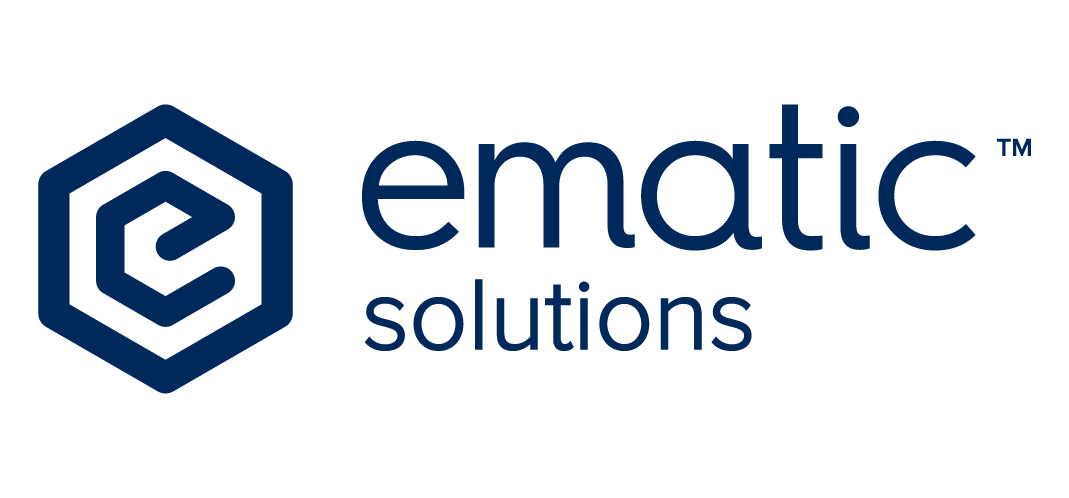Unlocking Success: The Power of First-Party Data for Your Business

In today’s data-driven world, how well do you really know your customers? Harnessing first-party data might be the key to knowing their preferences and driving your business success. This article explores what first-party data is, why it’s essential, how to collect it, and strategies for leveraging it effectively. What is First-Party Data? First-party data is the information you gather directly from your customers through your own channels. Unlike third-party data, which comes from external sources, first-party data is sourced from interactions with your audience, such as: Website interactions: User behavior and activity on your site. Customer surveys: Feedback directly from your customers. CRM systems: Data on customer interactions and history. Social media engagement: Insights from your brand’s social platforms. This type of data is typically more accurate and relevant, reflecting genuine interactions between your business and your customers. Why is First-Party Data Important? Accuracy and Relevance: First-party data is highly reliable because it comes directly from the source, providing true insights into your audience’s preferences. Enhanced Customer Relationships: By understanding customer preferences, you can create personalized experiences that lead to increased satisfaction and loyalty. When customers feel understood, they’re more likely to return. Cost-Effective Marketing: Utilizing first-party data allows for targeted marketing campaigns that are more efficient. This means you can avoid wasting resources on broad strategies that don’t resonate, ultimately boosting your ROI. Compliance and Trust: With tightening data privacy regulations, relying on first-party data helps you stay compliant while building trust with your customers. Transparency in how you collect and use data is key to fostering strong relationships. Informed Decision-Making: Insights from first-party data empower strategic choices about product development and marketing. Improved Advertising Targeting: First-party data enhances your ad campaigns, allowing you to create targeted messaging that resonates with specific audience segments. How Can We Collect First-Party Data? Website and App Analytics: Use analytics tools like Google Analytics to track user behavior on your website and apps. Understanding how customers interact with your platforms reveals their interests and pain points Customer Relationship Management (CRM) Systems: Implement CRM systems to manage and analyze customer interactions. These tools can help you create a comprehensive view of customer behavior and preferences. Social Media Interactions: Pay attention to engagement on your social media platforms. Monitor comments, shares, and likes to gain insights into customer preferences and behaviors. Engagement Through Value: Encourages customers to share their information by offering something in return. This could be discounts, exclusive content, or loyalty rewards that make sharing their data worthwhile. Surveys and Feedback Forms: Regularly seek feedback through surveys. This not only gathers valuable insights but also shows customers that you value their opinions. E-Commerce: Your Greatest Asset In today’s digital landscape, a well-optimized e-commerce website is essential, especially for brands that predominantly focus on online transactions. Not only does it facilitate smooth purchasing experiences, but it also plays a crucial role in collecting valuable first-party data. As the saying goes, “You can’t analyze what you can’t track.” Effective tracking with analytical tools like Google Analytics allows brands to monitor customer journeys, identifying engagement points and drop-off areas. By leveraging this first-party data, businesses can refine their marketing strategies and create personalized experiences that resonate with their audience. Level Up Your Ads Campaign with First Party Data You’ve probably experienced the frustration of irrelevant ads that just don’t resonate with you. Most of us aren’t fans of constant advertising, but smart advertisers know how to get their messages to the right people. That’s where first-party data comes in. Businesses with solid first-party data can craft targeted campaigns that resonate with specific audience segments, resulting in better engagement and higher conversion rates. While platforms like Meta and Google offer audience targeting, first-party data helps brands connect with people who already know and trust their products, boosting the chances of conversion. One major advantage of first-party data is its accuracy. Unlike general interest targeting, which can miss the mark, first-party data reveals exactly who your customers are and what they want. Plus, as data privacy laws evolve, using first-party data keeps you compliant and builds trust with your audience, who value transparency about their information. By integrating this data into performance marketing, businesses can not only refine their targeting but also strengthen customer relationships, creating personalized experiences that encourage loyalty and repeat purchases. In today’s competitive landscape, leveraging first-party data is a key strategy for sustainable growth. Connecting First Party Data to Ad Campaigns: Real-World Examples Here are three scenarios that demonstrate how to connect first-party data to your ad campaigns: Newsletter Subscribers: An F&B brand leverages its Klaviyo list to announce new product launches, offering subscribers early access and exclusive deals. This creates excitement and makes subscribers feel valued. Google Analytics Customer Segmentation: A skincare brand can use GA4 to identify users who often view anti-aging products but haven’t purchased yet. By serving them personalized ads featuring customer reviews and a special discount, we can encourage them to purchase. Lead Form Submission for Retargeting: A SaaS company retargets users who filled out a lead form but didn’t sign up. By sending tailored ads highlighting key benefits and offering a limited-time discount, they prompt potential customers to complete registration. Conclusion In a world where customer insights are crucial, leveraging first-party data is no longer optional, it’s essential for business success. By understanding your audience and personalizing their experiences, you can foster stronger relationships, improve marketing efficiency, and drive sustainable growth. As data privacy concerns continue to shape the landscape, relying on first-party data not only keeps you compliant but also builds trust with your customers. Start integrating these strategies today to unlock the full potential of your business and stay ahead in a competitive market. Embrace the power of first-party data, and watch your business thrive! Ready to elevate your business? Don’t go alone—our team at Ematic Solutions are here to help you. Take advantage of our free consultation to explore how we can guide you in leveraging first-party
CRM and Digital Marketing: A Perfect Combination for Business Growth
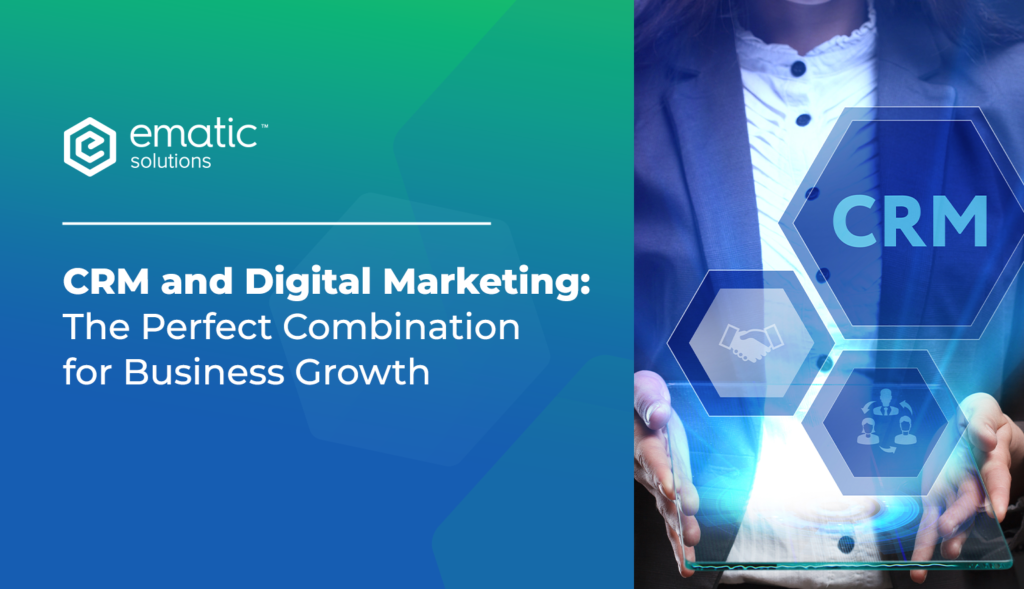
In today’s rapidly evolving digital landscape, businesses are compelled to be more adaptive to changing consumer behaviors and market competition. One proven effective strategy is the combination of Customer Relationship Management (CRM) and digital marketing. This article will delve into how integrating CRM and digital marketing can be the perfect combination for business growth. Here are five key subtopics we will explore: Understanding CRM and Digital Marketing CRM (Customer Relationship Management) is a strategic approach that companies use to manage their relationships with customers. It encompasses various tools and techniques designed to help businesses understand customer needs, enhance interactions, and build long-term loyalty. Using CRM in digital marketing enables businesses to collect, analyze, and leverage customer data more effectively. As a result, companies can create more personalized and relevant marketing campaigns, ultimately increasing conversion rates and customer satisfaction. Benefits of Using CRM and Digital Marketing CRM allows businesses to develop more effective marketing strategies through more accurate market segmentation. With the ability to group customers based on demographics, behavior, and preferences, businesses can create more targeted campaigns. For example, CRM can help identify customers who are likely to make repeat purchases, allowing companies to design timely retention campaigns. Additionally, CRM enables tracking the ROI (Return on Investment) of digital marketing campaigns. By understanding which campaigns generate the highest revenue, businesses can allocate resources more wisely and focus on initiatives that yield the best results. Improved Lead Quality: By tracking customer interactions, CRM helps identify high-quality leads that are more likely to convert. Increased Conversions: Personalized messaging and marketing automation can boost conversion rates and generate more sales. Enhanced Customer Loyalty: By providing a better customer experience, CRM helps build stronger relationships with customers and increase their loyalty. Better Decision Making: The data generated by CRM and digital marketing can be used to make more data-driven business decisions. Benefits of Integrating CRM with Digital Marketing Data Synchronization: By integrating CRM and digital marketing, businesses can unify all customer data from various channels. This allows marketing teams to have a more comprehensive understanding of customers. Personalized Messaging: Integrated data can be used to create more relevant and personalized marketing messages for each customer. This increases the likelihood of customers taking the desired action, such as making a purchase or providing a recommendation. Marketing Automation: CRM and digital marketing can be automated for routine tasks such as sending marketing emails, updating lead statuses, and follow-up reminders. This saves time and allows marketing teams to focus on more complex strategies. Optimizing Customer Experience Through Data Customer data collected through CRM is key to creating an optimal customer experience. In digital marketing, a good customer experience can be a significant differentiator. By analyzing CRM data, businesses can gain a deep understanding of the customer journey and identify the most influential touchpoints. For example, if CRM data shows that many customers encounter difficulties during the checkout process, businesses can take proactive steps to improve the process, whether through website optimization or customer education campaigns. Thus, the integration of CRM and digital marketing not only improves marketing efficiency but also helps create a better customer experience. Real-World Examples E-commerce: E-commerce companies can use CRM to track customer purchase history, provide relevant product recommendations, and send targeted promotional emails. Startups: Startups can leverage CRM and digital marketing to build brand awareness, build retention, acquire new customers, and accelerate business growth. Tips for Selecting and Implementing CRM Identify Business Needs: Before choosing a CRM, determine your business needs and the features that are important to you. Select the Right Platform: Consider your business size, budget, and the level of complexity required in a CRM. Train Your Team: Ensure your team receives adequate training to use the CRM effectively and understand its benefits. Integrate with Other Tools: Ensure the chosen CRM can integrate with other digital marketing tools you use for maximum efficiency. By understanding and implementing the integration of CRM and digital marketing, businesses can harness the power of data to enhance marketing strategies, improve the customer experience, and drive sustainable growth. CRM Tools That You Need To Know These are CRM (Customer Relationship Management) tools that can help elevate your business: Mailjet Mailjet is an email marketing platform that allows users to create, send, and track email campaigns. In addition, Mailjet supports email API for transactional and marketing emails. Its key features include customer segmentation, A/B testing, customizable email templates, and real-time analytics to track campaign performance. Klaviyo Klaviyo is a marketing platform focused on email and SMS, primarily for e-commerce businesses. Klaviyo integrates customer data from various platforms (such as Shopify, Magento, etc.) to create personalized communication experiences. Its key features include automated segmentation, AI-powered product recommendations, and in-depth analytics to monitor ROI from marketing campaigns. Iterable Iterable is a cloud-based marketing platform focusing on cross-channel communications (email, push notifications, SMS, social media, etc.) to enhance customer experiences. Iterable allows businesses to create automated workflows and personalized messages based on customer interactions. It is often used by companies with a focus on growth marketing and customer engagement. Hi-IQ Hi-IQ is a CRM designed to support smarter customer relationship management. Typically, this platform uses data analytics and artificial intelligence (AI) to improve customer experiences and assist businesses in making better decisions based on customer behavior and needs. Salesforce Salesforce is one of the most popular CRM platforms globally, used by both large and small businesses. Salesforce offers various tools for sales management, customer service, marketing, and analytics. The platform allows flexible integration with third-party applications and supports various types of business process automation. Salesforce is also known for its flexibility in customizing CRM according to specific business needs. These tools help businesses manage and build better relationships with their customers through more personalized and efficient communication strategies. CRM Services Offered by Ematic Solutions Ematic Solutions provides Customer Relationship Management (CRM) services to help businesses enhance their customer relationships through advanced strategies and technologies. They offer several key services, such as: Platform Management: Assisting businesses in selecting, implementing,
The Rise of a Dangerous Scam: Southeast Asian Agencies Under Attack
Hey there, job seekers! There’s a nasty scam going around Southeast Asia that you need to know about. Some pretty clever con artists are out there posing as HR folks, trying to lure people in with super tempting part-time gigs. Here’s the deal: These scammers slide into your DMs, email and even WhatsApp number, pretending to be from big-name companies. They cook up these amazing-sounding jobs with flexible hours and sweet pay. Sounds great, right? Well, here’s where it gets sketchy. They start asking for personal info – you know, the stuff you usually keep under lock and key. Bank details, ID copies, that kind of thing. And boom! Before you know it, they’ve swiped your identity or cleaned out your bank account. So how do you stay safe? First off, always double-check who’s really emailing you. If someone’s pushing you to hand over personal info ASAP, that’s a big red flag. And please, whatever you do, don’t share your sensitive data with strangers online. Look, I get it. The job market can be tough, and a great offer is hard to pass up. But trust your gut. If something feels off, it probably is. Stay sharp out there, and don’t let these scammers win! Disclaimer! We want to clear something up about how we hire at Ematic Solutions. Look, we know job hunting can be a wild ride, but here’s the scoop: We DO NOT go fishing for new team members through WhatsApp, Telegram, or any of those chat apps. Nope, not our style. When we’re looking to bring someone on board – full-time or part-time – we do things the old-fashioned way. You know, actual interviews, handshakes (or virtual high-fives), and a proper contract with all the i’s dotted and t’s crossed. We like to keep things official. Oh, and just so we’re crystal clear: We’d never, EVER ask you to shell out your own cash for anything work-related. That’s not how we roll. So if someone’s claiming to be us and sliding into your DMs with job offers? Yeah, that’s not us. Stay savvy out there!
Redirect Chain: A Hidden Danger for Your SEO

Highlights: Imagine you want to visit a store in a shopping mall. To get there, you follow the signs. However, you keep getting directed to different places. Eventually, you’ll become confused and give up. That’s what visitors to your website might experience when they encounter a redirection chain. Let’s dive deeper into this topic, starting from understanding what a redirection chain is, to how to address it to prevent harm to your website’s SEO. What is a Redirection Chain? When there’s more than one redirect between the URL clicked or intended by the user and the final page successfully accessed, it’s called a redirection chain. For example, when you click a URL, you’d normally be directed straight to the destination page. However, with a redirection chain, you might be redirected to page A, then to page B, before finally reaching the intended destination page. How Do Redirect Chains Occur? In SEO practice, the most commonly used types of redirections are 301 and 302 redirects. A 301 redirect is used when you want to permanently redirect a URL to a new one. A 302 redirect is used for temporary redirects to a new URL, usually when you intend to make changes to the original page. Redirection chains can occur when you: How Do Redirection Chains Affect SEO? Remember the purpose of implementing SEO strategies. Your efforts are likely related to user experience and search engine experience. Search engines like Google always emphasize that they value good user experience. When redirection chains occur on your website, several issues may arise: These issues can damage the good relationship you’ve built with users and search engines. As a result, the SEO strategy you’ve carefully implemented on your website could be ruined by redirection chains. How to Identify Redirection Chains on Your Website To identify redirection chains on your website, you could manually check each page if you have spare time. However, if you’re looking for a practical way without spending too much time, there are solutions! You can use online tools like redirect checkers to help you identify redirection chains on your website. The most commonly used tools include: Strategies to Address Redirection Chains and Improve SEO Actually, addressing redirection chains isn’t as complicated as it might seem. The process becomes very easy if you have a list of all URLs with redirection chains. You just need to break the chain by updating the redirection in the initial URL. Direct the initial page using a 301 redirect to the final destination page. This way, there won’t be more than one redirection. Example of Eliminating a Redirection Chain Suppose URL A is redirected to URL B. Later, that URL is redirected again to URL C. If this happens again, it could even reach URL D. What you need to do is replace or update the redirection of URL A, which previously pointed to URL B, to now point directly to URL C (or URL D if applicable). Meanwhile, the redirection on URL B can be maintained to URL C. After doing this, the redirection chain will be eliminated, and your SEO performance is expected to return to normal or potentially improve. However, if you still face some challenges or obstacles when solving this problem, feel free to chat with our SEO consultants. Frequently Asked Questions (FAQs)
Marketers Must-Know: The Game-Changing Meta and GA4 Integration
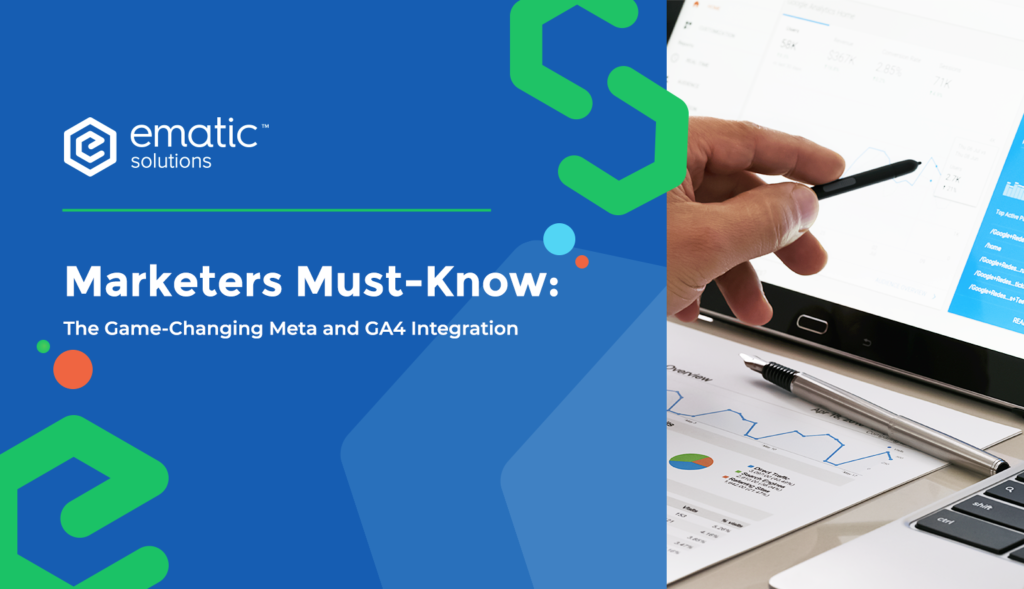
Picture this: You’re a digital marketer, deeply invested in optimizing campaigns across platforms like Meta Ads. You rely on GA4 for accurate insights into user behavior and conversions, but the reality is far from clear. The numbers simply don’t add up. Meta Ads and Google Ads claim 100 conversions each from a total of 150, while GA4 tells another different story. It’s like trying to solve a puzzle with missing pieces – incredibly frustrating! This is the common struggle for many marketers. The root cause of the problem lies in the varying attribution models employed by different platforms. Each platform has its own method for determining which marketing touchpoint gets the credit for a customer’s final action, like making a purchase. It was like looking at the same campaign through two distorted lenses. It’s like looking at the same thing through two different colored glasses, making it difficult to determine the true impact of each marketing channel. Introducing the Meta Ads and GA4 Integration (Good News!) Now, here’s the good news! Since 2023, Meta has been working on a game-changer integration with GA4. This feature is still in beta phase and Meta has started rolling out this feature to limited numbers of accounts. This integration facilitates better data syncing between platforms, providing a clearer picture of your Meta campaign performance. Unlocking The Benefits Wondering why this integration is so valuable? Here’s why: Streamlined Event Setup and Enhanced Conversion Accuracy: Linking your GA4 account to Meta is quick and simple just in a few steps, enabling you to directly connect your Google Analytics Events to Meta. This integration offers a more accurate view of your campaign performance. Seamless Syncing: Gain deeper understanding by selecting specific GA4 properties for targeted analysis tailored to your campaigns and audience segments. Data Privacy Control: Maintain strong data governance by defining which traffic data source you share with Meta. Accessing the Feature If you’re among the lucky few people with early access, you’ll see a pop-up in your Meta Ads Manager. Simply click “Connect Google Analytics” to begin. Here’s how to find this feature: Within your Meta Ads Manager, navigate to Event Manager. Under Partner Integrations, locate and select Google Analytics. Follow the on-screen instructions to complete the setup process. Impacts on Campaigns According to Meta, advertisers who connected their Meta account with Google Analytics saw a big 22% increase in attributed conversions on Meta. You can start seeing these performance improvements within just two weeks after setting up the integration. Understanding the Mechanism How does it all happen? This beta integration works by leveraging aggregated campaign-level data from Google Analytics to optimize Meta campaign strategies. It combines GA4’s data with Meta’s own tools (pixel and conversion API) to enhance ad performance. To ensure accurate data tracking and attribution in GA4, it’s essential to: Utilize Campaign URL Builder: This tool will help you generate trackable links to help GA4 identify where your website traffic comes from. Define Clear Parameters: Specify your source as “meta,” medium as “paid,” and include your campaign name on each link. Apply UTM-tagged Links: Incorporate these UTM-tagged links directly into your Meta Ads campaigns. Expert Insights from Ematic Solutions Here’s valuable insights from our consultants about this integration: “It’s very crucial that we obtain a comprehensive view of our data across all digital marketing channels. While this integration helps reduce data discrepancies, it’s essential to delve deeper into our backend data to establish a solid foundation for optimization. By comparing the total value and channel-specific performance from our backend systems to GA4, we can identify inconsistencies and make data-driven campaign adjustments.” – Ignatius Restu, Performance Marketing Consultant “With this integration, Meta ads campaigns should be able to perform better as GA4 can provide first party data to Meta to enhance its machine learning. It offers promising benefits for data streamlining and campaign insights, but we need to test it out by ourselves to see the impact across various campaign types. Data discrepancy will likely persist but using UTM parameters correctly can improve our ability to track website traffic and conversions.” – Hendra Wijaya, Analytic Consultant What’s Next? Meta plans to integrate with more analytics and app data in the future. Currently, Meta encourages advertisers to check if they have early access to this feature. However, we’ll need to patiently await the broader rollout of this beta integration. In the meantime, interested in optimizing your Meta Ads campaigns performance? Don’t worry – we’ve got you covered! At Ematic Solutions, we’re here to help you optimize your Meta Ads campaigns. Whether you’re aiming to boost conversions or get a deeper understanding of your customer journey and behavior, our team of experts is ready to assist. We ensure every penny of your ads budget is spent efficiently to deliver the best ROI for you. Let’s have a chat! Contact us today for free consultation. Source: https://www.searchenginejournal.com/meta-pushes-ga4-integration-boasts-22-conversion-boost/521601/ https://web.swipeinsight.app/posts/meta-reveals-more-details-on-the-google-analytics-integration-7686 https://www.linkedin.com/feed/update/urn:li:activity:7209210621324623873/?utm_source=swipeinsight.app&utm_medium=referral
The Importance of MMP in Mobile App Marketing
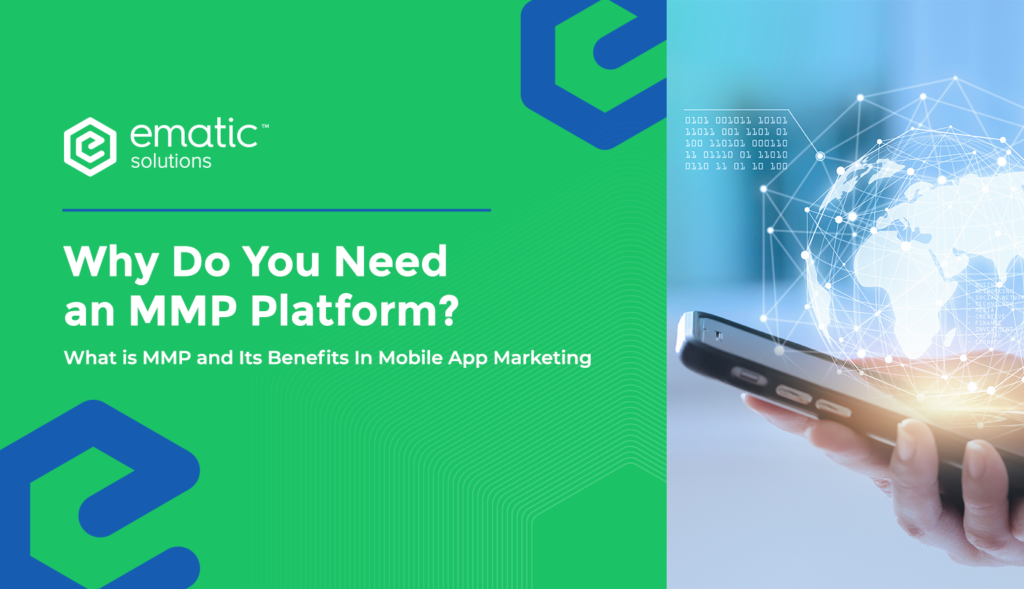
In today’s era, we’re not starving for information—we’re drowning in it. So what’s the real challenge? It’s turning that flood of information into a focused stream of action. Imagine having a library at your fingertips, but all the books are in a language you can’t read. That’s what raw data feels like without the right interpretation. The magic happens when you learn to make sense of the numbers and use them to make smart choices. It’s not just about having lots of information—it’s about knowing what to do with it. In business, the real power comes from using information wisely to make good decisions. In the game of business, good data can help you win. To win, you need to watch out for wrong information and carefully track what you’re doing. That’s why choosing the right partner to help you navigate this data minefield isn’t just important—it’s the difference between thriving and merely surviving in today’s market. That’s where MMP comes in to help. What is MMP? MMP stands for Mobile Measurement Partner. MMP is a tool that helps companies understand how well your mobile app marketing is working. Imagine you’re a game developer who just released a new mobile game. You’d want to know: How many people are downloading your game Where these people are coming from (like ads on social media or app stores) What users do in the game after downloading it An MMP helps track all this information. It’s like a report card for your mobile app marketing efforts, showing you what’s working well and what isn’t. Why do you need MMP? Let’s say there’s an app you see advertised in two ways: a short video ad and a banner ad on a website. You watch the video ad but forget about it. Then, the next day, you see the banner ad, click on it, and download the app. Normally, the banner ad would get all the credit for the download, right? But that wouldn’t be entirely fair, no? The video ad also played a role, even if you didn’t click on it right away. This is where MMPs come in. MMP is like a referee for app advertising. It tracks all the advertising a user sees for an app, not just the last one. So, in this case, the MMP would give some credit to the video ad for reminding you about the app and some credit to the banner ad for getting you to download it. For app makers, this is important because it helps them understand which ads are really working and where to spend their money. Without MMPs, they might waste money on ads that aren’t effective. So, MMPs are basically a way to make sure everyone gets a fair shot and that app makers spend their money wisely. What is the benefit of MMP for businesses? Do we get benefits by using this? Sure! There are some benefits that you can get, including: Accurate data tracking MMPs provide precise information about app installs, user actions, and marketing campaign performance. Better decision-making With detailed data, companies can make informed choices about where to invest their marketing budget. Time-saving Instead of manually collecting data from multiple sources, MMPs automate the process, saving time and reducing errors. User journey insights MMPs track the entire user journey, from first seeing an ad to actions taken within the app. ROI (Return On Investment) measurement Companies can clearly see which marketing efforts are producing the best return on investment. Cross-platform tracking MMPs can track user behavior across different devices and platforms, giving a more complete picture. Compliance with privacy regulations Good MMPs ensure data collection complies with laws like GDPR (General Data Protection Regulation), reducing legal risks. Hendra Wijaya, One of our Analytics Consultant, said this: “Even though it’s not exactly the coolest-sounding tool, it’s important and needed. They track your marketing efforts all across different channels, tell you which one flops and which ones actually bring in new users. MMP not only gives you a clear picture of what’s working, but also optimizes your campaigns.“ Pretty impactful, right? We’ll discuss in more detail in other articles. Hesitant about integrating MMP into your mobile app marketing strategy? Or perhaps, do you have the funds but lack the expertise to manage it effectively? Don’t worry – we’ve got you covered. Ematic Solutions is here to do more than just connect you with the perfect app partner for your business. We’ll also help you unlock the true potential of your data through expert analytics. With the help of Ematic Solutions, you’ll gain clear insights into your marketing spend and see exactly how it translates into results. It’s an opportunity to optimize your marketing efforts and boost your ROI. Why not give it a try? Source : https://www.adjust.com/glossary/mobile-measurement-partner-mmp/ https://www.appsflyer.com/blog/measurement-analytics/crucial-mmp-factors/
Create Ads on Meta, Edited by AI?!

Last May, Meta unveiled an exciting new feature to help businesses craft more captivating content, that’s called The Generative AI Feature. For advertisers, Meta’s knack for tailoring ad campaigns to business needs is nothing new. But this latest innovation takes creative expression to new heights, with AI powering the visual ad creation process. So, where can you find this game-changing feature? Look no further than Ads Manager, where you’ll discover Advantage+ Creative. What exactly does this AI assistant bring to the table? It lends a helping hand in three key areas: Background Generation Advertisers can now effortlessly match product backgrounds to diverse target audiences, adapting to every need. Image Expansion Say goodbye to tedious re-edits! Advertisers can now craft content that seamlessly fits various ratios, from Reels to Feeds, with just a few clicks. Text Variations Meta’s AI doesn’t stop at visuals. It can even suggest ad titles and content, learning from your unique messaging style in previous campaigns. This feature not only streamlines visual ad creation but also significantly cuts down overall campaign production time, boosting productivity to new heights! Ignatius Restu, a Performance Marketing Consultant from Ematic Solutions, offers a word of caution. While the AI capabilities are truly remarkable, he emphasizes that Digital Marketers must still play an active role in the process. Without careful oversight, there’s a risk that the intended ad message might not be conveyed with 100% accuracy. Ready to dive in? Hold your horses! Meta has been testing this feature since late last year in Australia, New Zealand, and Canada. They plan to roll it out globally in stages before the end of 2024. While there’s no concrete timeline for when Indonesian Meta Business users can take it for a spin, the feature has already landed in countries like Argentina, Mexico, Chile, Peru, France, and Italy. It seems Indonesia’s turn is just around the corner! So, what do you think? Eager to give it a try? Source: https://www.facebook.com/business/news/Introducing-Enhanced-Gen-AI-Features-and-Other-Tools-to-Help-Build-Your-Business https://www.facebook.com/business/news/generative-ai-features-for-ads-coming-to-all-advertisers
Klaviyo vs. Mailchimp: Choosing the Right Email Marketing App (2024)
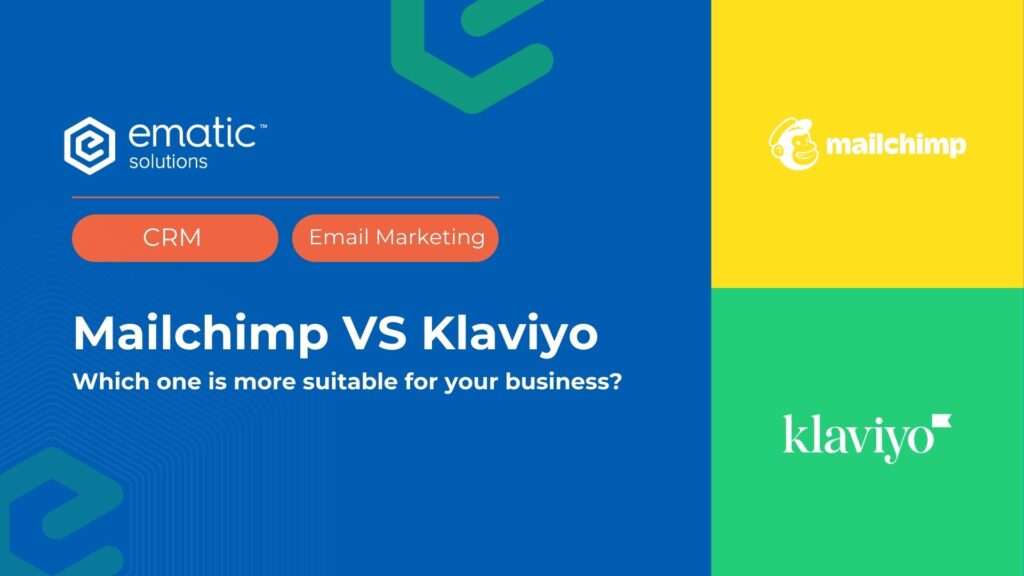
Klaviyo vs. Mailchimp: Choosing the Right Email Marketing App (2024) In today’s fast-paced digital landscape, effective communication with your audience is paramount. Amidst the myriad of marketing channels, email marketing remains a robust and personalized approach for businesses. Choosing the right email marketing app is crucial, and two platforms that often stand out are Klaviyo and Mailchimp. This article aims to be your guide, helping you navigate the complexities and nuances of each platform to make an informed decision. Head-to-Head Comparison Ease of Use Mailchimp: The hallmark of Mailchimp is its user-friendly interface, making it an excellent choice for beginners and those seeking a hassle-free design process. The drag-and-drop builder simplifies the email creation process, allowing users to craft visually appealing campaigns without technical expertise. Klaviyo: While Klaviyo might have a steeper learning curve, especially for novices, the investment in understanding the platform is rewarded with a plethora of advanced features. The detailed documentation provided by Klaviyo aids users in mastering the platform’s capabilities, empowering them to create more sophisticated and targeted campaigns. Marketing Channels Mailchimp: Mailchimp stands out with its versatile marketing channels. Users can easily schedule social media posts, create landing pages, and send SMS, streamlining the overall marketing process. This flexibility makes Mailchimp an attractive option for marketers looking for an all-encompassing solution. Klaviyo: With a specific focus on email marketing and eCommerce integration, Klaviyo positions itself as a specialist in these areas. Klaviyo not only supports email and SMS but also mobile push, making it a comprehensive choice for businesses wanting a multichannel marketing approach. Ecommerce Features Mailchimp: While Mailchimp does offer eCommerce add-ons and integrations, it might not provide the same level of built-in eCommerce features as Klaviyo. Businesses heavily focused on eCommerce might find Klaviyo’s offerings more aligned with their needs. Klaviyo: One of Klaviyo’s standout features is its robust set of eCommerce tools. From built-in product recommendations to automated abandoned cart emails and purchase triggers, Klaviyo offers a sophisticated toolkit for businesses looking to optimize their eCommerce operations through targeted and data-driven marketing. Also, one thing that Klaviyo offers is the ability to track all events happening on the website which can be useful for any business to understand their audience. Pricing and Plans Mailchimp: The allure of Mailchimp lies in its free plan accommodating up to 500 contacts, making it an attractive option for small businesses and startups. Additionally, Mailchimp’s paid plans are affordable and scalable, allowing businesses to grow without a significant increase in marketing costs. Klaviyo: Klaviyo’s pricing structure is based on how many active profiles you currently have on your account. This may seem daunting as if you have a huge number of active profiles but you don’t send email frequently you could get charged a lot. But here in Ematic, if you decide to take Klaviyo with us you can get the pricing based on sending volume. Making it cheaper and saves cost for those who have a huge database but don’t send frequently. The Final Verdict In conclusion, the choice between Klaviyo and Mailchimp hinges on your specific business needs and priorities. For Beginners or a Simple Setup: Mailchimp’s user-friendly interface and affordable plans make it an excellent choice for those just starting with email marketing. For eCommerce Focus: Businesses seeking advanced eCommerce features and detailed customer insights may find Klaviyo to be the superior option. If you are a business that needs simple features that are easy to navigate through and are budget constraints, you can get mailchimp. But if you are a business that needs a more comprehensive detail on your ecommerce, taking advantage of more advanced features Klavyio provides, will give you the boost your business needs. Why We Think Klaviyo is Better? Klaviyo is an email platform built specifically for eCommerce and online merchants to provide better personalization and “user journey” features for its users. Some of the highlights of Klaviyo are They have direct integrations with almost all well-known eCommerce players including Shopify, Magento, Salesforce Commerce Cloud, WooCommerce, BigCommerce, and more. If you use any of these eCommerce platforms, Klaviyo will collect data and user activity from your e-store at the same time so that you can use the data for further marketing. You can read more about it on this article: Klaviyo – The Perfect Email Solution for eCommerce Here in Ematic Solutions we offer the support you need to fully take advantage of Klaviyo advanced features. We can also provide you with unique pricing that suits your business needs. Talk to us today for your consultation! So if you have an ecommerce, we really think that Klaviyo can grow your business faster. But we also understand that every business is different. Thats why, consider the strengths and weaknesses outlined in this comparison, and align them with your business objectives to make an informed decision. Each platform offers unique advantages, ensuring there’s a suitable option for beginners, eCommerce sellers, or multi-channel marketers alike.
